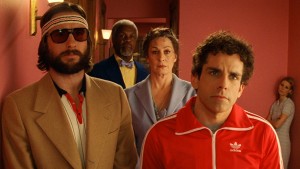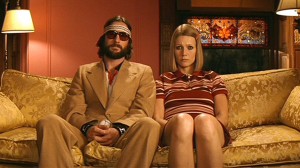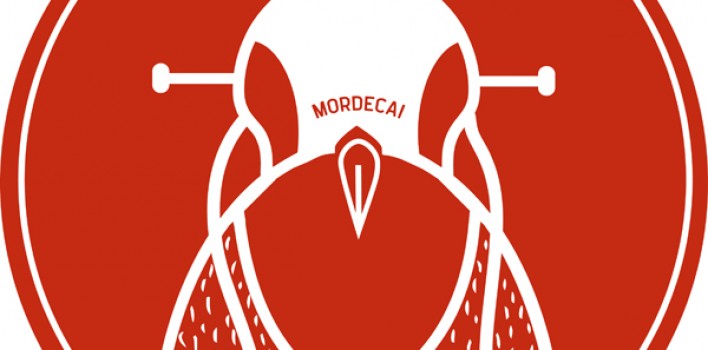Director’s Cut| Wes Anderson’s ‘The Royal Tenenbaums’
The visuals of Wes Anderson’s movies are iconic. His set style, cinematography and color palate make his pictures stand out in a sea of filmmakers, all hoping for your attention. I could spend pages swooning over these aspects of his work, and have, but that’s not the goal of this series. The goal of this series is to dig into the stories of filmmakers, and look at how their story points us to a bigger story and view of the world. The goal is to use my own viewpoint and experience to shed some light on some of my favorite movies. Some of the things I see in these films will likely not be new or eye opening for you, but I hope you’ll read them as my hope for what you might see anew in the stories of these great filmmakers. We’ll start with Wes, and all of his wonderful films, and hopefully find ourselves in another director’s world after that. My love for Wes’ films is known by nearly all of my friends, and I hope this Director’s Cut series will encourage you to seek out a director that would inspire you as much as his films, and the films of many others, have done for me. In the words of the great Ira Glass, “Stay with us.”
 Families are a weird thing. After a holiday, most friends tend to ask you, “How was time with your family?” with the most knowing of looks. “It wasn’t bad,” is a typical response. More common, “It was great! The kids, the food, the laughter, you know?” Maybe not exactly in those terms, but hopefully you catch my meaning. It’s not that all families are bad; it’s just that all families are weird. Generations of shared memories and experiences lead to all sorts of things on the joy-to-sorrow spectrum. When it comes to our emotions about families, they’re complicated.
Families are a weird thing. After a holiday, most friends tend to ask you, “How was time with your family?” with the most knowing of looks. “It wasn’t bad,” is a typical response. More common, “It was great! The kids, the food, the laughter, you know?” Maybe not exactly in those terms, but hopefully you catch my meaning. It’s not that all families are bad; it’s just that all families are weird. Generations of shared memories and experiences lead to all sorts of things on the joy-to-sorrow spectrum. When it comes to our emotions about families, they’re complicated.
Tens, if not hundreds, of movies have been able to capture different aspects of family. Movies like Christmas Vacation peeking at the hilarity and awkwardness that surrounds the holidays. Meet the Parents showing us the stereotypical, overprotective father. And, of course, The Royal Tenenbaums captures the competitiveness and complexity of sibling relationships.
My appreciation for The Royal Tenenbaums runs deep. Easily in my Top 5 Wes Anderson movies, it tells the story of a manipulative father and the three child prodigies he did little to help raise. I mean, he did some stuff, but most of it didn’t help matters. Most of it led them to begrudge each other or despise themselves for one reason or another. It’s the movie that leapt Anderson into the world’s view, and gave him a huge budget for his next film The Life Aquatic with Steve Zissou. It’s also the movie that for many, myself included, introduced us to one of our favorite directors of all time.
 Competitiveness is insidious. It creeps and crawls its way into our lives. I don’t often think of myself as competitive, because I don’t really care to win at Settlers of Catan or basketball. The older I get and the more I see of myself, I’ve started to realize I’m incredibly competitive. I’ve always got a story, or a bit of knowledge to drop on you, or a friend that’s done a thing similar to the thing you just talked about. I learned it young, when I saw it all around me in the friends and family I grew up with.
Competitiveness is insidious. It creeps and crawls its way into our lives. I don’t often think of myself as competitive, because I don’t really care to win at Settlers of Catan or basketball. The older I get and the more I see of myself, I’ve started to realize I’m incredibly competitive. I’ve always got a story, or a bit of knowledge to drop on you, or a friend that’s done a thing similar to the thing you just talked about. I learned it young, when I saw it all around me in the friends and family I grew up with.
 It probably started with my sister and me. She was older, and I always felt like I was expected to do as well as her, and she did really well. That feeling settled a rift between us causing us to bicker and argue, as brothers and sisters often do. I remember the first time I saw this scene in The Royal Tenenbaums. It reminded me of us as kids. We’re not that way anymore (we chum it up now, and God knows I would do anything for her), but I never really used to trust that love could actually exist between us. Don’t get me wrong we didn’t hate each other; we just had reasons to compete.
It probably started with my sister and me. She was older, and I always felt like I was expected to do as well as her, and she did really well. That feeling settled a rift between us causing us to bicker and argue, as brothers and sisters often do. I remember the first time I saw this scene in The Royal Tenenbaums. It reminded me of us as kids. We’re not that way anymore (we chum it up now, and God knows I would do anything for her), but I never really used to trust that love could actually exist between us. Don’t get me wrong we didn’t hate each other; we just had reasons to compete.
Growing up, Royal (Gene Hackman) always seemed to choose Richie (Luke Wilson). When I think of them together, I think of the scenes of them placing bets on the dogfights. When I think of Royal and Chas (Ben Stiller), I think of the scene where Royal was supposed to be on Chassy’s team, and he ends up shooting him in the hand with a BB gun. I think of Royal’s, often misguided, support of Richie’s tennis profession, and his apparent theft of Chas’s money.
 As complex as Royal’s relationships are with his sons, their relationship is even more complex that what we see on screen. Though the lack of screen time, it adds complexity to all of the decisions made from the moment Chas gets overwhelmed trying to care for his two sons, and returns back to his childhood home. When Royal comes back into their lives, by lying about a cancer diagnosis he doesn’t have, the boys are immediately put at odds. Richie, ever the naïve one, assumes everything is above board, but Chas is having none of it.
As complex as Royal’s relationships are with his sons, their relationship is even more complex that what we see on screen. Though the lack of screen time, it adds complexity to all of the decisions made from the moment Chas gets overwhelmed trying to care for his two sons, and returns back to his childhood home. When Royal comes back into their lives, by lying about a cancer diagnosis he doesn’t have, the boys are immediately put at odds. Richie, ever the naïve one, assumes everything is above board, but Chas is having none of it.
They don’t so much fight, as settle themselves on opposite ends of a decision and refuse to budge. This type of competition is obvious, and easy to spot in our own lives, but is rarely the actuality. Our competitions with each tend to be more subtle and subdued, looking for more attention or affection from those around us than the other people we see ourselves in competition with. Often when the love comes, we refuse to accept it. Chas, upon hearing the kind sincerity of his brother, who doesn’t see their differences as all that important anymore, can’t accept it.
 Love is hard to accept from someone you deem an enemy or an obstacle. Love is hard to accept from someone who has always been pitted against you, rather by their own doing or the doings of another. No one pitted my sister and I against each other, least of all her, but a perceived competition is just as deadly. This is so prevailing in our communities. I hear so often from people who are jealous of their own friend’s success. I can honestly say that I’ve found myself jealous for a friend’s time, because it was so consumed with doing the thing they loved.
Love is hard to accept from someone you deem an enemy or an obstacle. Love is hard to accept from someone who has always been pitted against you, rather by their own doing or the doings of another. No one pitted my sister and I against each other, least of all her, but a perceived competition is just as deadly. This is so prevailing in our communities. I hear so often from people who are jealous of their own friend’s success. I can honestly say that I’ve found myself jealous for a friend’s time, because it was so consumed with doing the thing they loved.
Arguably, these two brothers would’ve likely had a much better relationship if Chas wasn’t building a real estate empire and Richie wasn’t trying to win Wimbledon. To grow as brothers rather than ships passing is a much better reality, but often times that’s not possible. Our own relationships have such possibilities, because we live in a reality where most of us do have time to sit down and talk to our friends and family, rather than pit ourselves against them. Would that we could see the possibilities our friendships hold, if we celebrated our differences rather than rebelled against them.
***Editor’s Note*** Logo Design by Michael VanPatter, who’s awesome work can be found at MichaelVanPatter.com







